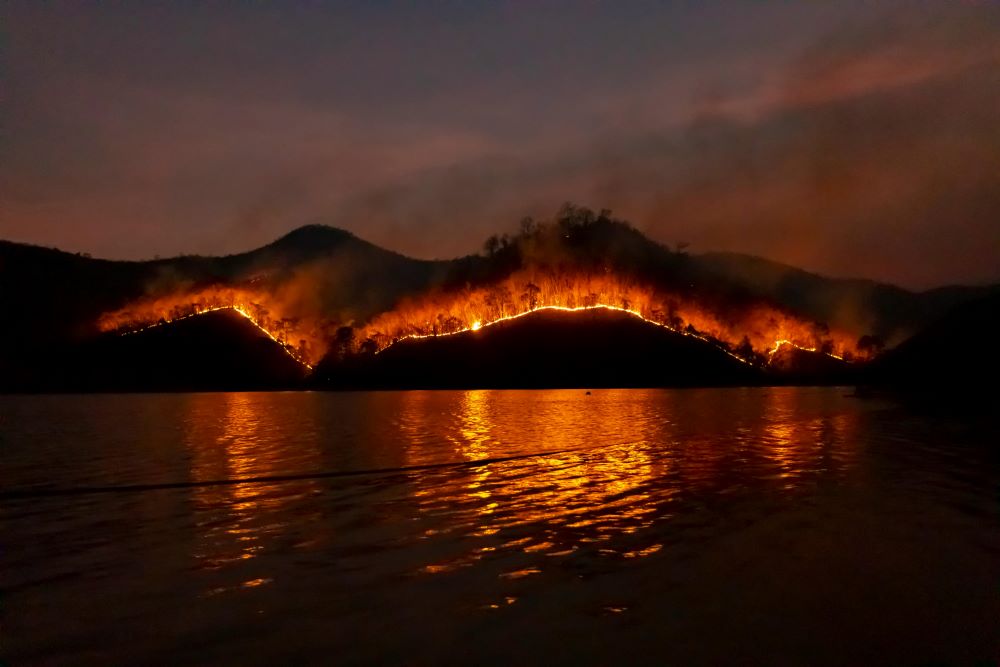Warren Buffett’s company agrees to settle claims, addressing extensive litigation and financial risks.
PacifiCorp, a utility owned by Warren Buffett’s Berkshire Hathaway, recently announced an agreement to pay $178 million to resolve claims from just over 400 plaintiffs. This settlement addresses wildfire issues from Beachie Creek and the Echo Mountain Complex in northwestern Oregon, which were part of the devastating series of fires over the Labor Day weekend.
PacifiCorp has now settled nearly 1,500 claims from both individuals and businesses in Oregon and northern California. Despite this, the utility still faces thousands of additional claims. The recent settlement focuses on plaintiffs who opted out of class-action litigation, where others are seeking at least $30 billion. PacifiCorp views this amount as excessive, stating its committed to settling “all reasonable claims, “essentially leaving it ambiguous as to whether this means addressing all.
Ryan Flynn, president of PacifiCorp’s Pacific Power division, expressed hope that the latest settlements would provide “some closure” to the plaintiffs. George McCoy, an attorney representing the plaintiffs, added that resolution offers “meaningful compensation” and allows victims to “rebuild and recover from these traumatic events.”

PacifiCorp is a, specifically, unit of Berkshire Hathaway Energy, 92% owned by Buffett’s Omaha, Nebraska-based conglomerate. In his annual letter to Berkshire shareholders, Buffett admitted he “made a costly mistake” by not anticipating the financial risks posed by wildfires. This sentiment was echoed by Greg Abel, Buffett’s expected successor as CEO, who highlighted the need for legislative and regulatory reforms to help utilities manage these risks.
The threat of mounting legal costs has made utilities across the western U.S. risky investments. In addition to PacifiCorp, utilities in California, Colorado, Hawaii, and Texas have faced billions of dollars in potential fire liabilities. This widespread issue underscores the significant financial risks associated with operating in wildfire-prone areas.
The recent agreements mark a significant step in resolving the extensive litigation that began almost four years ago. The process leading to the resolution was described by Flynn as the “fairest and most efficient way to resolve wildfire litigation.” He criticized class-actions as costly and complex, often acting as a barrier to reasonable outcomes for individuals with varying personal experiences.
In the class-action, which is ongoing, jurors have so far awarded 36 plaintiffs a total of about $220 million, averaging more than $6 million per person. Last year, a jury in Portland state court found PacifiCorp “grossly negligent” for failing to heed weather warnings and shut off electricity in its service areas before a windstorm that toppled power lines. PacifiCorp has stated its confidence in prevailing on appeal.
This development represents a significant financial burden but also a step towards resolving the extensive litigation from the 2020 wildfires. The need for proactive risk management and robust safety measures is clear as utilities face heightened scrutiny and potential liabilities. In general, the litigation reflects broader challenges in managing risks and responsibilities in times of significant crises. As climate change continues to intensify and natural disasters result, companies must adapt to new realities, implementing more proactive strategies to mitigate risks.
Sources:
Warren Buffett’s PacifiCorp utility reaches $178 million wildfire settlement
Berkshire Utility Settles 403 More Fire Claims for $178 Million


Join the conversation!